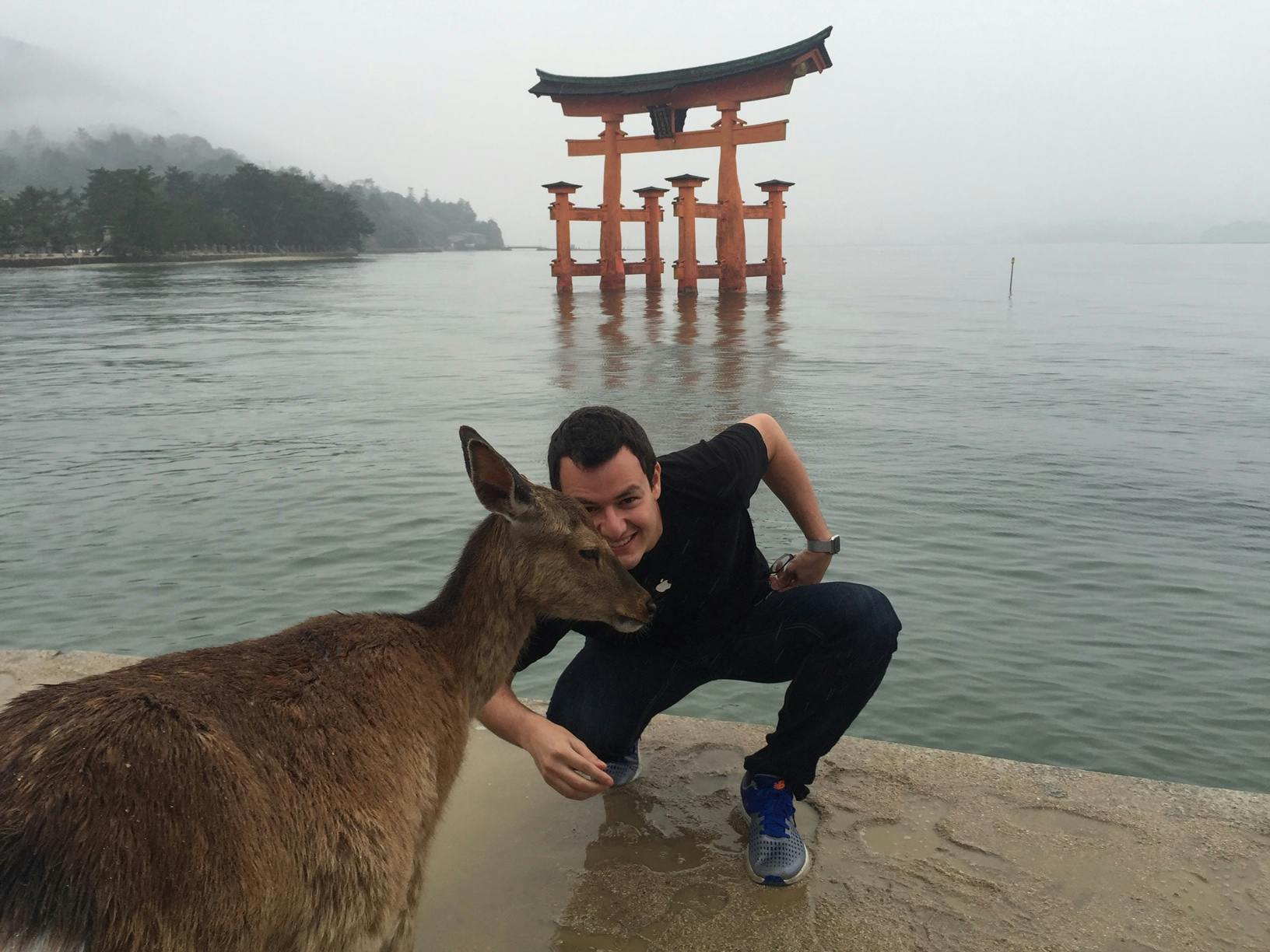Interests
Japan
Complex love in the land of the rising sun.
Ever since I first learned that the TV cartoons I was watching as a kid weren’t actually cartoons, but Japanese anime, I was hooked on learning more about this far away and unique country called Japan. I’d have to wait almost 15 years though before I had the chance to visit Japan for the first time, with a friend and colleague for New Years in 2014/15. I immediately fell in love! It’s no surprise then that when Rakuten Founder and CEO Hiroshige Mikitani-san visited my first year HBS LEAD class I jumped at the opportunity to return to Japan in a professional setting. When I meet someone for the first time, almost without fail one of the first two questions I’m asked is, “Why Japan?” What follows is my best attempt at a succinct answer that has three parts, listed in order of importance:
1. Omotenashi (お持て成し) Mindset: my experiences in Japan have shown me that at the core of the Japanese existence is a mindset that isn’t individualistic, but collectivistic. People genuinely care about other people and take actions that don’t always serve themselves, but that are also beneficial to their communities. A great example is the annual bridge-cleaning festival at Nihombashi (日本橋) in Tokyo, where the local community of families, children, office workers, police, etc… get together and spend a whole day washing the bridge, something they see as a public good that should be collectively maintained. Another famous example are the actions some Japanese fans took after the last World Cup to clean up other fans’ trash following one match. Imagine what our world would look like if we all acted in such a magnanimous way.
2. Business & Learning Opportunity: Japan is a fruit ripe for the picking when it comes to the data science (DS) field. While the US and China have a robust competitive landscape of top-notch DS companies, Japan, as the third largest economy, lags very far behind on this dimension. Further, Japan is facing some serious headwinds in it’s declining and aging population, it’s urbanization and the decay of rural society, and a stagnating economy. Many of these ailments will impact significant parts of the world including the US, Europe and China in the decades to come. What better place to learn and find solutions to these 21st century problems than the place where it’s occurring now: Japan.
3. Culture: I would be remiss if I din’t mention my appreciation for Japanese culture, but this is my third reason for being in Japan and comes deliberately after the previous two. With that said, I’m less of a Japan foodie and more into unique Japanese forms of expression, such as anime/manga, Kabuki theater, cosplay (as an observer), some elements of otaku (オタク) culture, Shodo (書道) calligraphy, Byobu (屏風) Japanese folding screens, Termari (手毬) Japanese handballs, and Bonseki (盆石) miniature landscapes. I also find that Japan has some absolutely stunning landscapes and I can’t wait to continue exploring them!
However, Japan is a complex country and my love and appreciation for the many positive aspects of Japan does not betray the fact that there are also many challenges. These include women’s and LGBT rights; racism towards some foreigners; a rigidity towards a predefined process that is often insurmountable; and a work culture that can lead to depression, anxiety, and suicide; among many others. In my view, Japan is like an onion: on the surface it’s quite nice, but as you peel back the layers and go deeper the more complex it gets. I acknowledge this complexity about Japan and I also acknowledge that every country is complex. I firmly believe that Japan can and will rise above the challenges it’s facing and I hope that my company can be part of that positive story. #complexity
